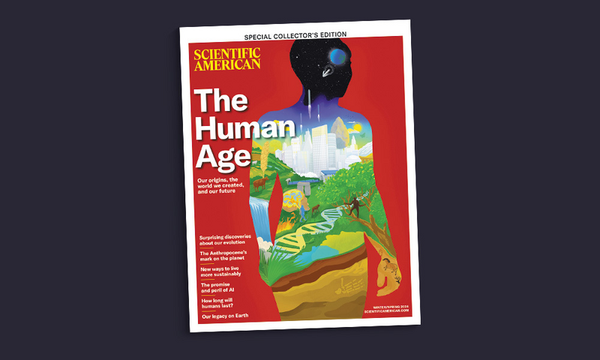The Origin and Legacy of the Human Age
Whether we live a million more years or another week is up to us
Scientific American
It has never been a certainty that humans would survive on Earth. We’ve probably faced extinction several times in our evolutionary past, according to genetic analysis. In the past few years a global pandemic killed millions, the hottest months in human record baked much of the world, and thought leaders signed a global petition to rein in powerful (and potentially harmful) artificial-intelligence technology. These challenges remind us that there are no guarantees. And yet we are a species to be reckoned with. We have accomplished a great deal in our relatively short time here—extended our life spans, made startling discoveries about our environment and ourselves, harnessed resources to improve our quality of life, and developed rich histories of art and culture. The human legacy on Earth is unparalleled.
How did we get here? It turns out that our evolutionary story is not a linear progression from ape to human. Each fossil discovery adds to the messy tangle that is the path leading to Homo sapiens. Our large brains helped to solve the complex problem of primitive survival, and interpersonal relationships and altruism might have given us a strong advantage over other hominins. Both male and female ancestors shared the duties of hunting, according to new analyses.
And what a world we’ve created together. We’ve built a behemoth financial system, established global communication and trade networks, and unleashed information technology. The benefits of those systems are not evenly distributed, however, leaving many lacking basic resources and health care. Now some economists have started to wonder whether we’re using the proper tools to measure the true success of a society. Our life expectancy has more than tripled over the course of our two-million-year story. At the same time, growing inequality and poor future…
Read the full article here







